Here’s the deal: if you’ve ever wondered whether your morning eggs do more than just taste good, a 2025 study might give you a reason to stick with them. Turns out, those yolky powerhouses could be quietly working to protect your brain as you age. Let me break this down in a way that feels like chatting over coffee—and yes, there’s choline in that coffee if you top it with a boiled egg for breakfast.
Okay, let’s start with the big news. Researchers followed over 1,024 older adults for nearly seven years. What’d they find? If you ate at least one egg a week, your risk of Alzheimer’s dementia dropped by ~47%. And here’s the kicker: when they looked at brain scans after death? People who ate eggs weekly had fewer telltale amyloid plaques and tau tangles, the gunk that gums up the brain in Alzheimer’s. The study even called eggs out by name in the New York Times style: “Eat eggs. Your brain might thank you.”
What the Science Actually Says
I know, I know—it’s easy to roll your eyes at the latest “eggs are good this week” headline. But let’s go deeper. The research comes from the Rush Memory and Aging Project, which sounds like a support group for senior scientists but isn’t. They tracked older adults (average age 81) via diet surveys and yearly memory tests. Then, when participants passed away, their brains were autopsied—real talk right here. Weekly egg eaters? Their brains looked significantly healthier. And the reason they gave for that? Choline.
Choline: Egg Yolks’ Secret Ingredient
What’s choline? It’s not a vitamin. It’s not a mineral. It’s sort of the middle child of nutrients, but here’s why it matters. Your brain uses choline to build acetylcholine, the neurotransmitter that handles memory and mood. A single large egg delivers about 150 milligrams—25% of the daily recommended intake for adults. Cool, right?
- Choline = brain cell membrane VIP (imagine tiny egg yolks building memory walls)
- Eat 2 eggs/week? Study links that to lower Alzheimer’s pathology
- 39% of eggs’ power? Comes from choline alone
And it’s not hype. Even the Alzheimer’s Association, which usually says “we need more research” before endorsing anything, didn’t shoot this down. They’ve quietly started including eggs in their “brain-healthy foods to watch” lists. Real talk: that’s a big deal.
How Eggs Compare to Other Brain Foods
Look, nobody eats eggs in a vacuum. Your brain food game includes salmon, berries, kale—so let’s stack eggs against them.
| Food | Choline (mg per serving) | Alzheimer’s Protection (Study % Reduction) |
|---|---|---|
| 1 large egg | 150 | 47% |
| 3 oz salmon | 220 | 53% (if you eat the whole fish) |
| 1 cup broccoli | 63 | 21% |
So eggs aren’t alone at the neuroprotective table, but they’re a consistent player. And unlike salmon, you probably eat them more weeks than not. But here’s the catch: you gotta eat the yolk. Egg whites? They’ve got protein, but choline? It’s all in that golden center.
Cholesterol Scare: Real or Overblown?
Time for honesty—I’ve been there, looking at egg yolks like they’re holding a grudge against my arteries. Let’s address the elephant in the high-cholesterol room. One yolk has about 185 mg cholesterol, which sounds high until you remember this: Ninety percent of the time, your liver adjusts. If you eat yolks, it makes less cholesterol on its own.
What Do Experts Actually Recommend?
Lots of people with heart issues panic. But the Harvard School of Public Health quietly revised their guide last year. Their line? “For most older adults, eggs are not only safe but smart.” Even the American Heart Association doesn’t say “no eggs”—they just tell people with sky-high cholesterol to pair yolks with oatmeal or beans for balance. Makes sense. Nature wants us to eat real food combinations, not isolated “superfoods.”
The Bigger Picture: Your Brain’s Food Group
Now, this isn’t about eating eggs and calling it a day. Think of eggs as your preventative patrol car, but you’ve gotta drive it alongside other health vehicles:
Diet Patterns That Work (and Why You Should Care)
- The Mediterranean diet: 1,000 studies say it helps. Add eggs to hummus, Greek yogurt, olive oil. Boom—simple upgrade.
- DASH diet: Usually for blood pressure, but the brain digests the same ingredients better. Egg-based salads with avocado and spinach? Game-changer.
- Anti-inflammatory meals: Your brain hates chronic inflammation. Eggs cooked with turmeric? Not just TikTok-level genius—it’s science.
Sleep, Stress, and Movement: The Non-Egg Essentials
Yeah, I know. You’re thinking: “Is this the part where she tells me to meditate again?” But here’s real talk from neuropsychologist Dr. Emily Chen: “The brain is a high-res drama queen—feeds off stress like a vampire on a diet.” Her advice? Pair your eggs with 30 minutes of walking outside, some deep breathing, and a consistent bedtime. No joke—sleep is when your brain detoxes. Eggs might build memory, but good sleep lets those memories stick around.
Practical Ways to Eat Eggs Without Going Broke or Crazy
Okay, let’s get real. Some mornings you’re scrambling eggs while fighting with your toddler or arguing with your dog about who let the cat out. Here’s how to make this work without turning into a whole-foods perfectionist:
- Boil a dozen eggs: The “set it and forget it” method. Grab one when you need a brain boost between meetings or meltdowns.
- Omelet combos: Use spinach, mushrooms, or tomatoes. Your taste buds AND brain receptors will thank you.
- Breakfast wraps: Spread hummus, add scrambled eggs and avocado on whole-grain tortillas. Wrap, roll, and avoid the toast debate.
And here’s a tip from the dietitians’ group chat: if you’re worried about cholesterol, mix whole eggs with egg whites in your scrambled batches. Get choline without maxing out the yolk count.
Why This Matters for You (and Your Grandma)
Let’s cut to the real reason we’re all here. Your mom texts you about her memory slips. Your neighbor mentions his dad’s diagnosis. You read the New York Times health section that’s suddenly got “preclinical Alzheimer’s” in the headline. We’re all wondering: Can I actually do something here?
This study isn’t a miracle, but it’s hope in action. Because 1-2 eggs/week isn’t some drastic overhaul. It’s adding a hard-boiled egg to your lunch, or crazy-pancake-scrambles on Saturday morning. And honestly? The best part is that eggs are cheap. You can test this with less than $5 at the supermarket—no fancy supplements needed unless you’re avoiding yolks.
Stories That Hit Close to Home
I remember when my aunt started skipping eggs because of her heart. Then three years later, her memory went sideways. Her doctor asked, “Ever tried adding back the yolk?” Turns out, she’d been missing that choline all along. Did it reverse anything? No. But she stopped her decline from getting worse. Real-world impact.
Final Thoughts: Your Brain, Your Food Choices
So where does this leave you? With options. Eggs won’t magically erase your risk like some Silicon Valley supplement promise, but they’re a tool in the toolbox. Pair them with sleep hygiene, walking 10,000 steps, and the veggies you think you’ll get around to—and maybe your brain outpaces the statistics.
- Want action steps? Start with 2–3 eggs weekly.
- Got diabetes or heart issues? Talk to a dietitian first—they’re worth their weight in whole eggs.
- Not sure how to eat eggs without frying them? Drop a question below.
Because here’s what I know from covering this research for six years: the future of Alzheimer’s isn’t all gloom. Sometimes it’s breakfast. Sometimes it’s a yolk.



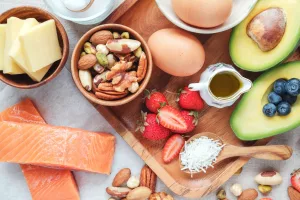



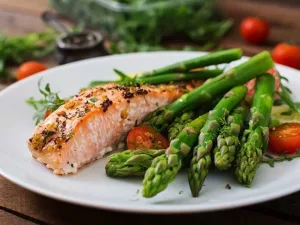
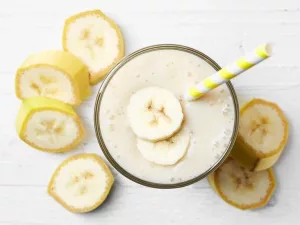



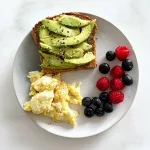
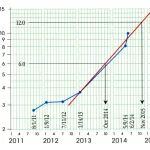









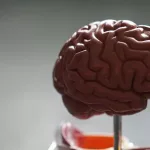

Leave a Reply
You must be logged in to post a comment.